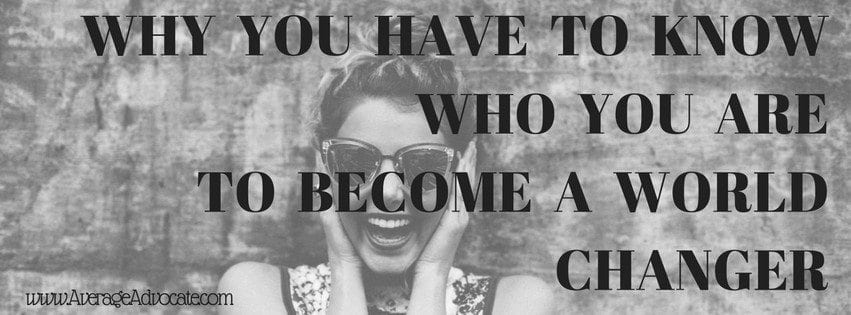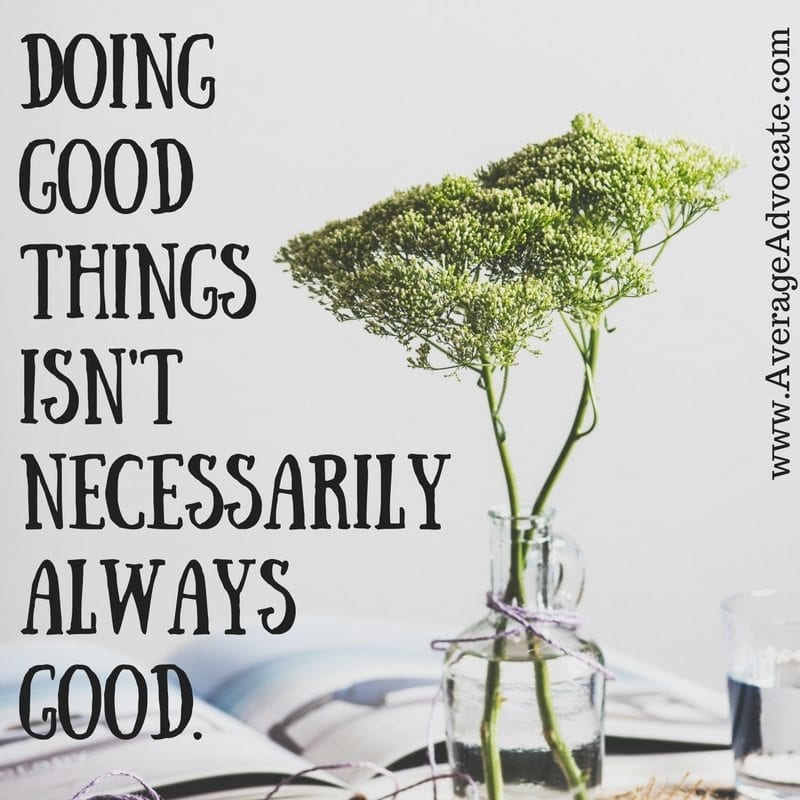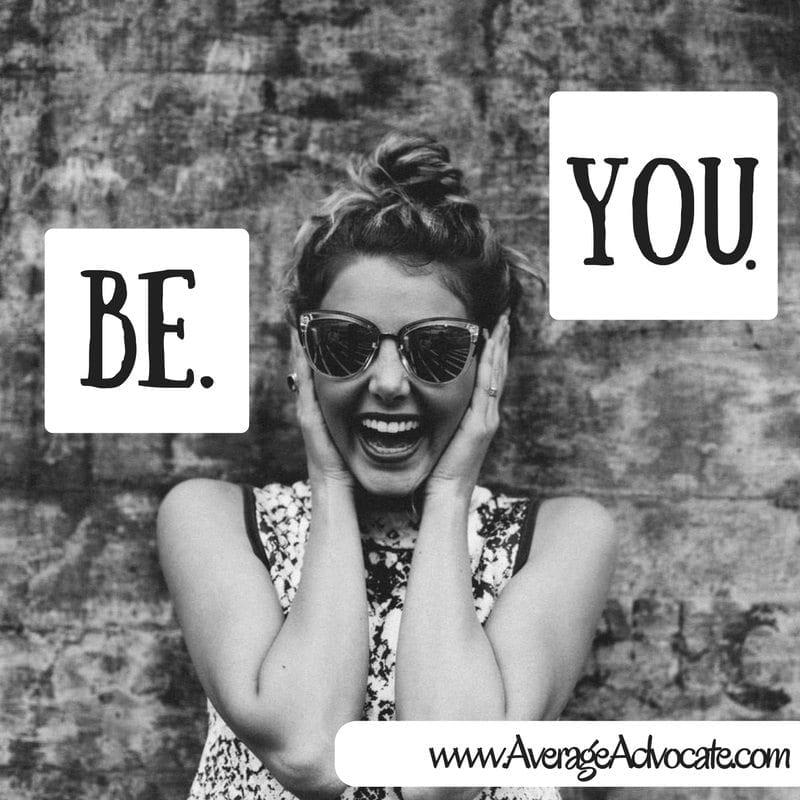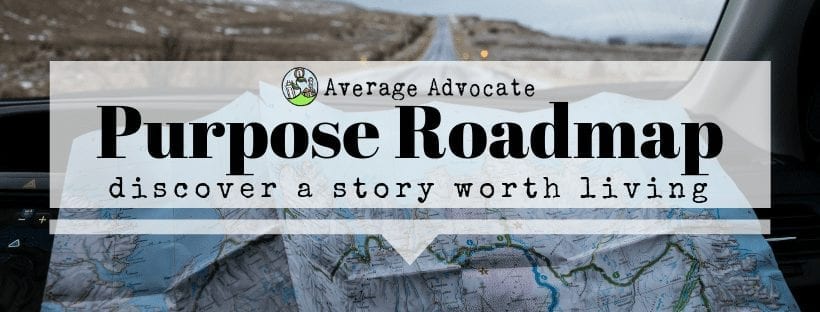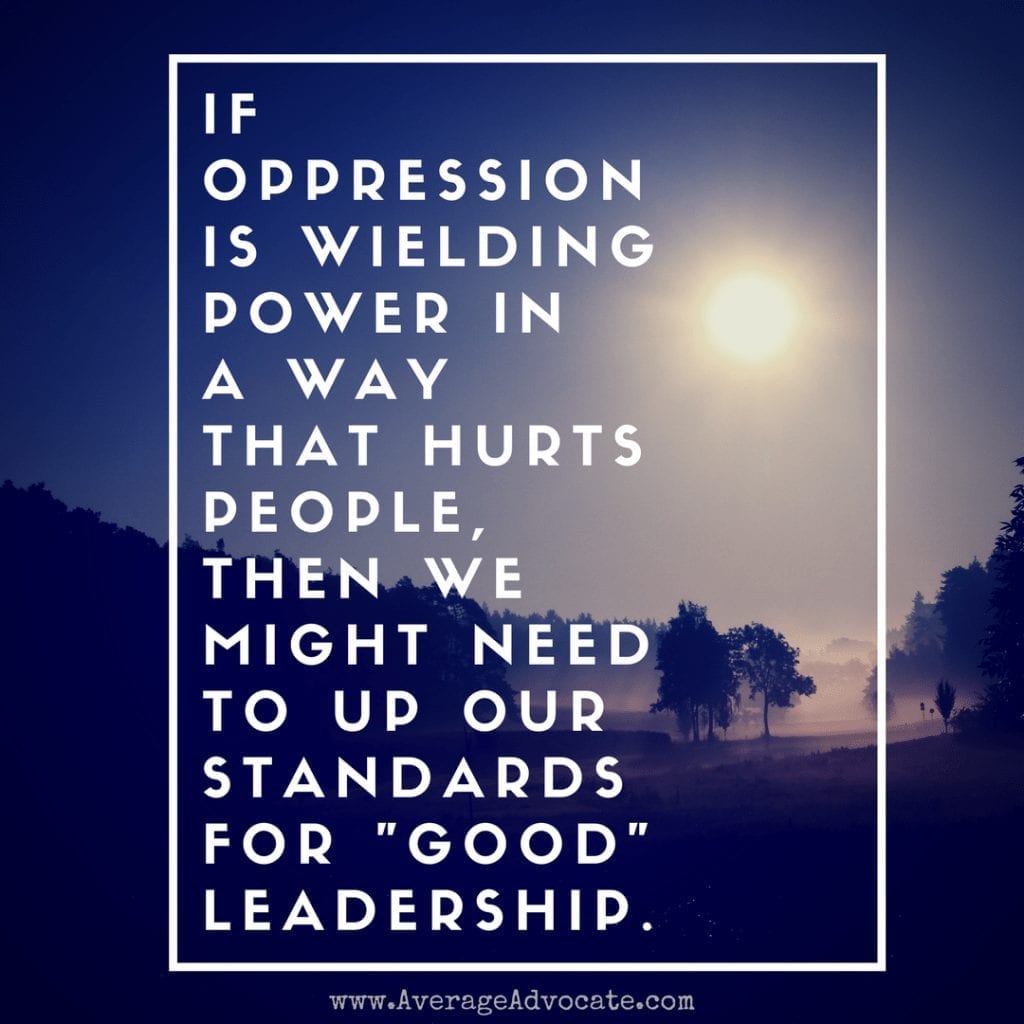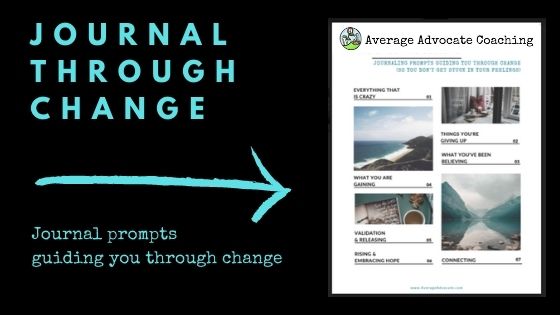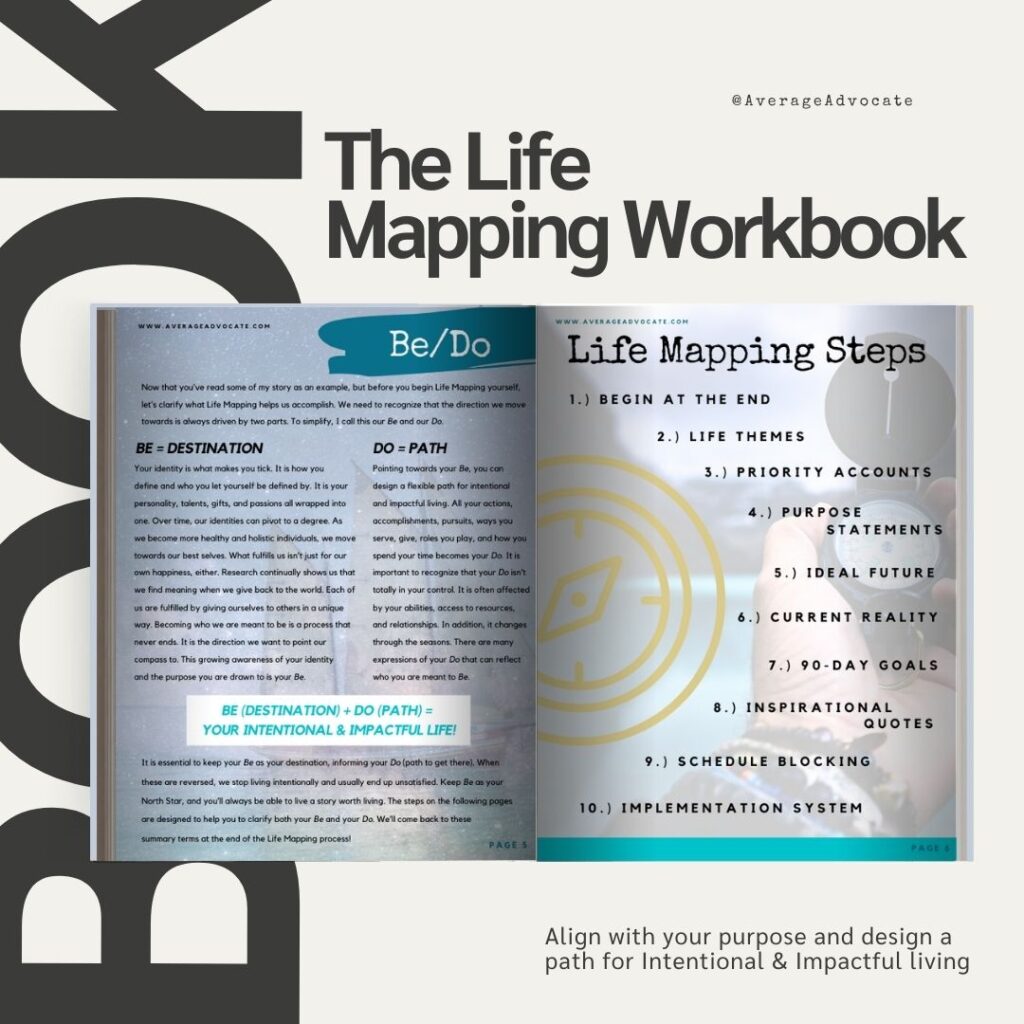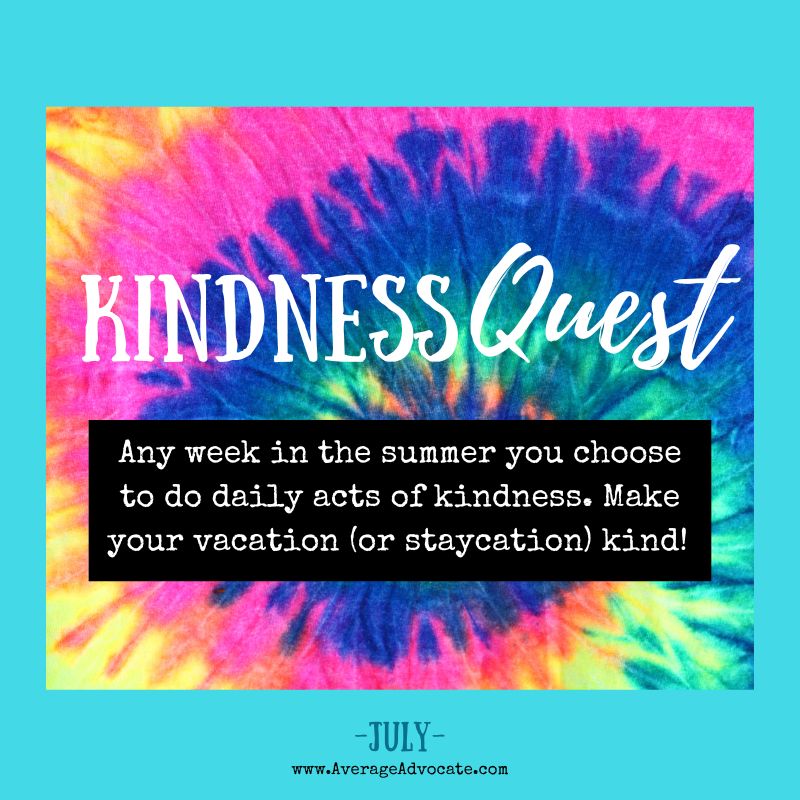There is no way personality tests could predict my preference for coffee, and coffee served this way, every day, twice a day: Seven creams and four sugars mixed into fair trade french-pressed coffee in a swirly, hand-painted, world changer mug, with a spoon in the mug just to create awkward clinking noises.
Why absolutely, yes! And absolutely only me.
Assessments can’t define us or our interests, but I’ll sing it loud and clear that personality tests have helped me become a world changer.
Recently I talked about why knowing who you are is essential to finding your best role as a world changer (check it out, as this post hinges on it).
We might all be meant to make a difference, but we aren’t all born to do the same thing, let alone be the same person. I can’t be you, you can’t be me (even if you might prefer your coffee the same way I do). We are different, and that is a wonderful thing.
Doing Good Things Isn’t Necessarily Good.
Why do you do what you do? It is super easy to do things just because. It is what happens when we don’t plan to not do them. And that is why we can easily find our whole night wasted, zoned-out on Facebook, having devoured a gallon of ice cream, and binged watched a season of Downton Abby.
Once every weekend.
The same goes for the way we approach the “good things” we invest in–if we don’t make a plan, we might do all of them. And if we don’t make a decision not to, we find ourselves doing all things that are “good,” but that drain us rather than are expressions of us fully alive.
So how do we change this? How can we be who we were meant to be and do what we were meant to do?
One of the ways to discover what you were meant to do is by assessing who you already are. This practice isn’t supposed to peg you in a hole, or keep you from growing and changing. It is simply to help you know what makes you tick and come alive, so you can more intentionally say “yes” to things that are you.
Only because I think it might help you see yourself, I am going to give you a bunch of examples of how assessments have helped me find my best role and how they have helped me grow as a world changer.
Feel free to skip ahead, but don’t miss out on Average Advocate’s list of recommended assessments!
How Personality Assessments Helped Me Find My Best Role
I’ve been fascinated about personalities and what makes people tick since I was a child, reading The Treasure Tree with my parents. I discovered I was an “Otter,” or as most non-children call it, a sanguine.
But then I started taking more detailed assessments. They helped me recognize things I could see, but couldn’t put words too. That I was good at encouraging people. I was good at starting things. That there wasn’t something wrong with me because I doodled all over my math homework or following instructions to troubleshoot always floods me with stress.
This is just me, like coffee served the way I previously described is me.
And it is helpful.
Jobs I Might Not Be Cut Out For:
I just deduced from those characteristics I have (math doodles & following instructions) that my best role to change the world probably wouldn’t be to become an electrical engineer working by for the same company for my whole life–even if it does “good things,” like designed cheap computers so kids can be educated in poor nations.
Jobs I Am Cut Out For:
Although I can manage, I am not an ideal long-term manager. I used to hate that about myself, that I couldn’t stick with projects for more than a year, or a few at max.
Instead of forcing this anymore, I embrace that I am an entrepreneur. I leave space for the people called to long-term management and I focus on what I am better at–creating vision, organizing and managing things until they get going, and then stepping aside.
Confronting Limiting Beliefs:
Some assessments have also unveiled some of my subconscious beliefs.
For example, after taking the DISC, I realized I believed it was morally wrong for me to really take the reigns and direct people. For one, I am a woman (in some contexts, being a woman, a leader, and a Christian are considered opposing by some).
But I also thought acting as a leader would cause me to be too pushy, too demanding, too prideful and require me to step on too many toes. Both those are symptoms of poor leadership character, not being a leader itself. Through the DISC and some mentors in my life, I confronted this belief and began embracing leadership with confidence rather than purposefully squelching it.
Encouraging Who I Am (Not Who I Am Not):
I spent tons of time, over many years understanding how my personality assessed Meyer’s Briggs style (I’m an ENFP) can be used in the best way. It helped me learn to say no to things that were so not me. Then, the Strengthfinders guided me to not focus on my weaknesses, but capitalize on my strengths. I took next steps to improve areas I was good at.
Assessments Are For Relationships and Team Building:
Strengthfinders helped me began to lean on people more, desire to work as a team, pushing me to develop a community (like World Changers United).
Why? Because I realized I needed people and all of their in-born strengths. The Myers Briggs also helped me learn how to develop teams in organizations and encourage people in their strengths. It drastically helped my marriage and parenting too!
Spiritual Growth:
Followers of Jesus believe God gave us spiritual gifts and callings. There are a couple of good assessments to help Christians recognize what the areas God has been using them in, so they can appreciate and capitalize on those areas with God even more. These assessments opened my eyes to things I didn’t realize about who I was becoming.
Personality Tests Are Made For Growth, Not For Boxing People In
The greatest complaint, excuse, or concern I hear from people about these assessments hinges on the fear that they will be boxed in. That they will be given a label, it will be too defined, and they will have no freedom to change.
I will argue that if this is the case, the assessments are just being used wrong. Partially because whether you give a title to it or not, we are still what we are. If someone is brunette, they have brown hair whether you call them brunette or not.
Think of assessments as descriptors, not as requirements.
Helping My “J” Daughter Be Flexible:
Let me give you an example of how assessments can work for growth, rather than boxing people in. I am being clued in that my daughter is likely a “J” on the Myers Briggs, which means she tends to plan and she appears to prefer organization in the way she approaches life. For her sake, when I go to the zoo, I make a plan with her when we arrive. The plan will likely change as we go, or we might only plan part of it. But to help her enjoy the experience it is important for her to feel like she knows where she is going.
On the other hand, saying “Let’s just see where we end up!” stresses her out and the zoo experience doesn’t feel enjoyable to her. Knowing this helps me be intentional when I communicate with her. As a parent, I can meet her where she is to coach her through experiences that are flexible rather than simply dropping her into change, require it by force. The result is that she is becoming a very flexible “J.”
Helping World Changers Grow Together:
Can you imagine how much better world changing projects would go if people were aware of the personality differences and strengths on their team? Don’t you think this helps us love others?
We aren’t supposed to stay stuck in a box, but rather grow into people that can acquire other skills, or at least tolerate what isn’t natural to them. The Myers Briggs assessment uses something akin to a formulaic flowchart to show a typical growth pattern,a different one for each of the sixteen personality types. Ideally, you learn how to not just be your natural state, until you can learn how to live life in balance.
How Have I Grown In Who I Am As a World Changer?
Here are a few more examples–not about how assessments have helped me just find my best role, but how I am actually changing as a person.
Resting & Avoiding People Burn-Out:
For one, I’ve learned how to “introvert” and rest, even though I am an extrovert. I can now see when I need to be with people and when I need time away. This helps me be a healthy person, which affects the way I love others. It has really helped me make boundaries.
Logical Persuasion:
I’ve also learned how to make logical arguments and decisions through thinking, rather than just being driven by my feelings. This is essential, as half the population isn’t driven by passion and feelings!
For example, many will begin to care about human trafficking simply by sharing a story with them. But to others I’ve had to “prove” why this issue is a problem, giving them the facts of why it is worth their attention. How can I inspire to engage on social issues if I don’t use logic?
Organization:
I can now trick some of the Myers Briggs tests to think I am a “J” because I’ve learned how to organize, plan, and create processes in my life and for those I consult with and coach, which is essential for the world changing role I have right now. I am still relatively flexible, but I am also just as planned. (Unfortunately, the organization doesn’t extend to my laundry or kitchen as well as I would like.)
I Made You a List of Recommended Assessments To Help You Find Your Best Role
These are just some of the many examples of how assessments have helped me on my own path to becoming a world changer. In fact, I would argue, they were essential to help me figure out my best role.
You can use these assessments to appreciate and celebrate who you are and move into roles that you are a good fit for. There are so many survey’s and tests, I just wanted to make sure you spend your time on the ones that are worthwhile!
If you would like even more help, I offer coaching intensives to help you process your personality via these personality tests and give you guidance on your best fit one-on-one.
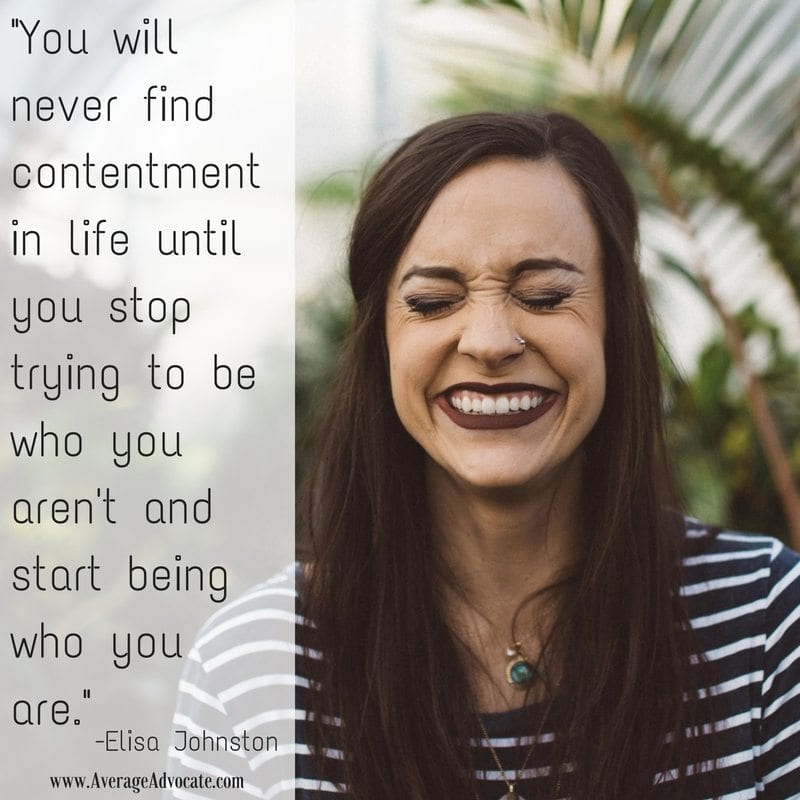 If you want to see the first post in this series, I highly recommend it! (But I highly recommend everything I write!) Here it is: Why Knowing Who You Are is Essential to Finding Your Best Role as a World Changer
If you want to see the first post in this series, I highly recommend it! (But I highly recommend everything I write!) Here it is: Why Knowing Who You Are is Essential to Finding Your Best Role as a World Changer

